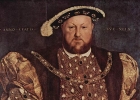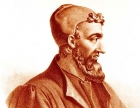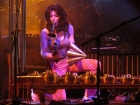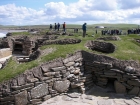Whole School
As part of a broad and balanced curriculum, history should find a place at the heart of school life, providing enrichment through trips and projects, through cross-curricular links and through whole school activities such as assemblies. In this section you will find resources and guidance to ensure history enjoys a high profile across the whole school.
Sort by:
Date (Newest first) | Title A-Z
Show:
All |
Articles |
Podcasts |
Multipage Articles
-

In My View: Creativity & History
ArticleClick to view -

Insights from a year of leading the development of a ‘knowledge-rich curriculum’
ArticleClick to view -

Museums, schools and creativity: How learning can be enhanced
ArticleClick to view -

Museums: Entries to Learning
ArticleClick to view -

Planning for history - the coordinator's perspective
ArticleClick to view -

Primary history and British values
ArticleClick to view -

Progression and coherence in history
ArticleClick to view -

Success with primary history: overcoming the challenges
ArticleClick to view -

Teaching famous people at key stage one
ArticleClick to view -

The Interactive Whiteboard or Smart Board
ArticleClick to view -

The National Curriculum for History from September 2014: the view from Ofsted
ArticleClick to view -

The digital revolution
ArticleClick to view -

Time, Chronology, language and story
ArticleClick to view -

Towards inclusion: A study of significant figures and disability within the national curriculum
ArticleClick to view -

Using classic fiction to support the study of childhood in Victorian times
ArticleClick to view -

V&A Schools SEN Programme
ArticleClick to view -

Whole-school planning for progression
ArticleClick to view

